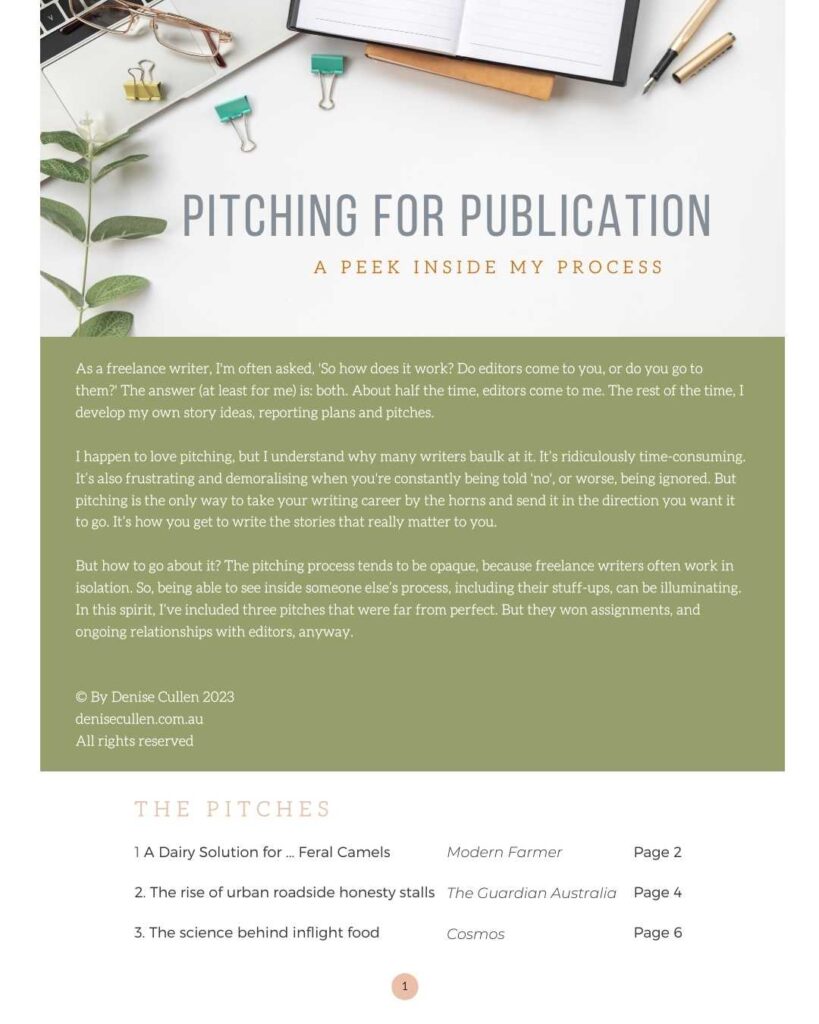Many aspiring writers (and plenty of established ones too) hate pitching editors. It can be time-consuming and morale-sapping, especially when you’re constantly being told ‘no’, or worse, being ignored.
So don’t make pitching any harder than it has to be. Don’t let these bogus beliefs hold you back.
Myth 1 – You must have friends in high places.
Let’s be frank. Connections do help in the media industry, but even if you’re starting from scratch, you can still get your ideas in front of the right sets of eyes. (That’s what pitching is all about.) So long as you have some solid ideas and the skills to execute them, cold reach-outs do work. Be resourceful, take risks, and dream big.
Myth 2 – If I can just crack the code, the editorial floodgates will open.
There’s no such thing as a magical pitch recipe. Sure, there are a handful of ingredients you need to include in every pitch, but there’s no magical plug-and-play template, secret recipe or failproof formula that will guarantee your pitches will be picked up every time. What matters is the quality of your ideas, your own belief in the worthiness of a story, and a little sprinkling of luck.
Myth 3 – If the editor passes on my idea, it means it sucked.
Sometimes you’ll come up with ideas that suck – at least, according to an editor. But if your pitch isn’t commissioned, there are a whole lot of other reasons why. It went to spam. They were too busy to read it. They might have already commissioned something similar. They have filed it away for later, with plans to come back to you, months later, when you’ve forgotten you ever sent it (has happened to me more than once).
Want three ways to triple the odds an editor will say ‘yes’ to your pitch? Read the post.
Myth 4 – You’re just trying to secure an assignment.
View pitching as a long game and it will change your whole perspective. You’re not trying to sell a single story here – you’re trying to build a relationship with an editor. Editors do play hard to get – they’re busy people, after all. But don’t act like a thwarted suitor. Even if your brilliant pitch gets a ‘no’, or no response at all, stay positive and respectful. And then pitch them something new.
Myth 5 – Every pitch must be perfect.
Pitches don’t have to be perfect. They just need to be good enough. The pitching process tends to be shrouded in mystery because freelance writers often work alone. In my free resource Pitching for Publication, I present three pitches that landed assignments, and ongoing relationships, with editors. I also highlight the many embarrassing mistakes that an editor could have seized upon if they’d really wanted to strike me out. The reality is that editors, like writers, are just looking for good stories. Usually, they’re willing to tweak those that don’t work from the get-go. Want to read the three pitches? Click here.

